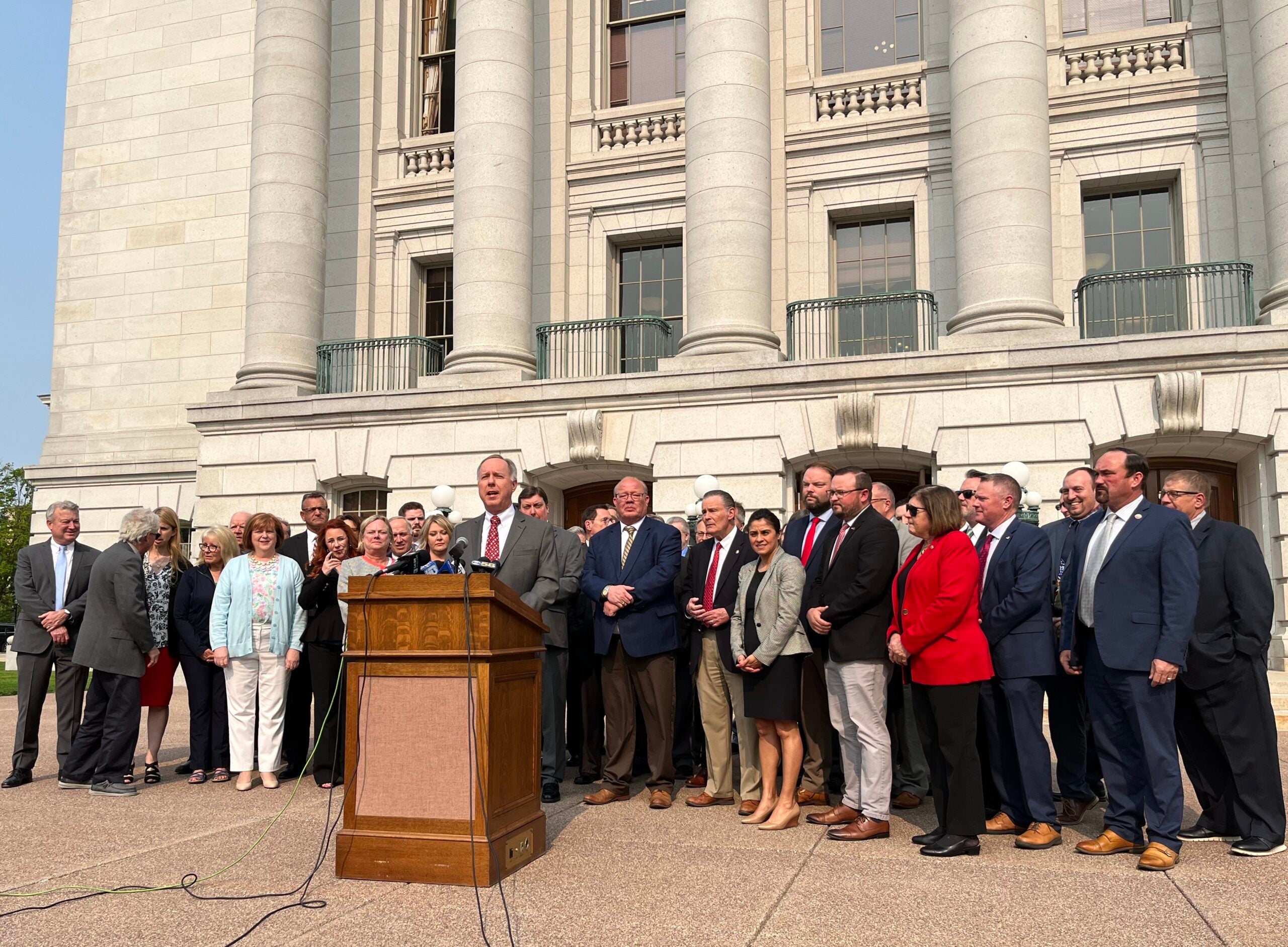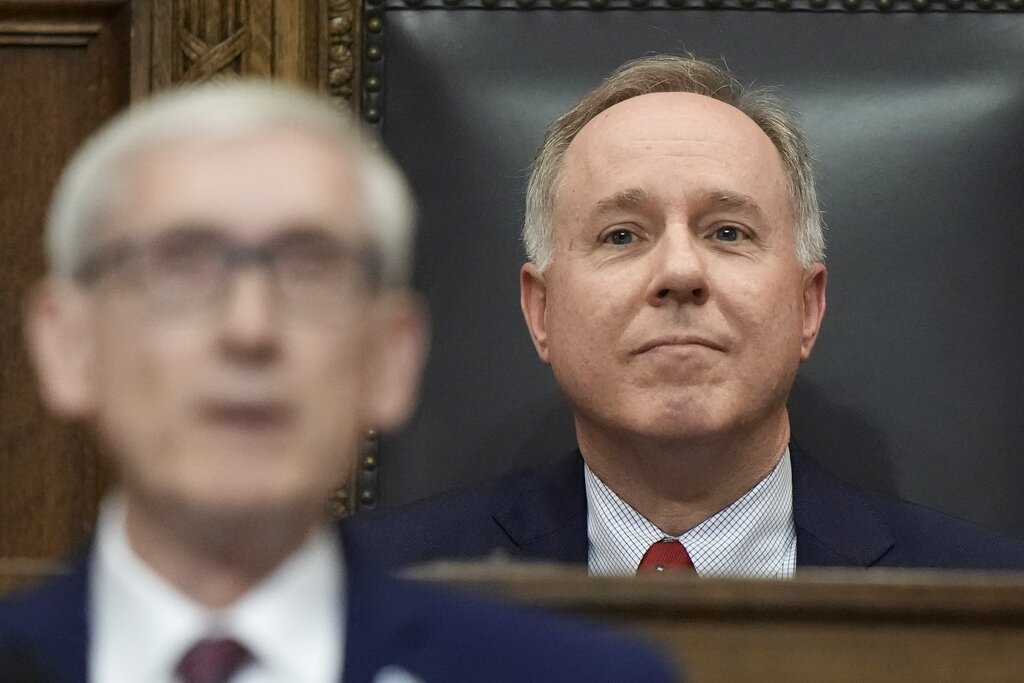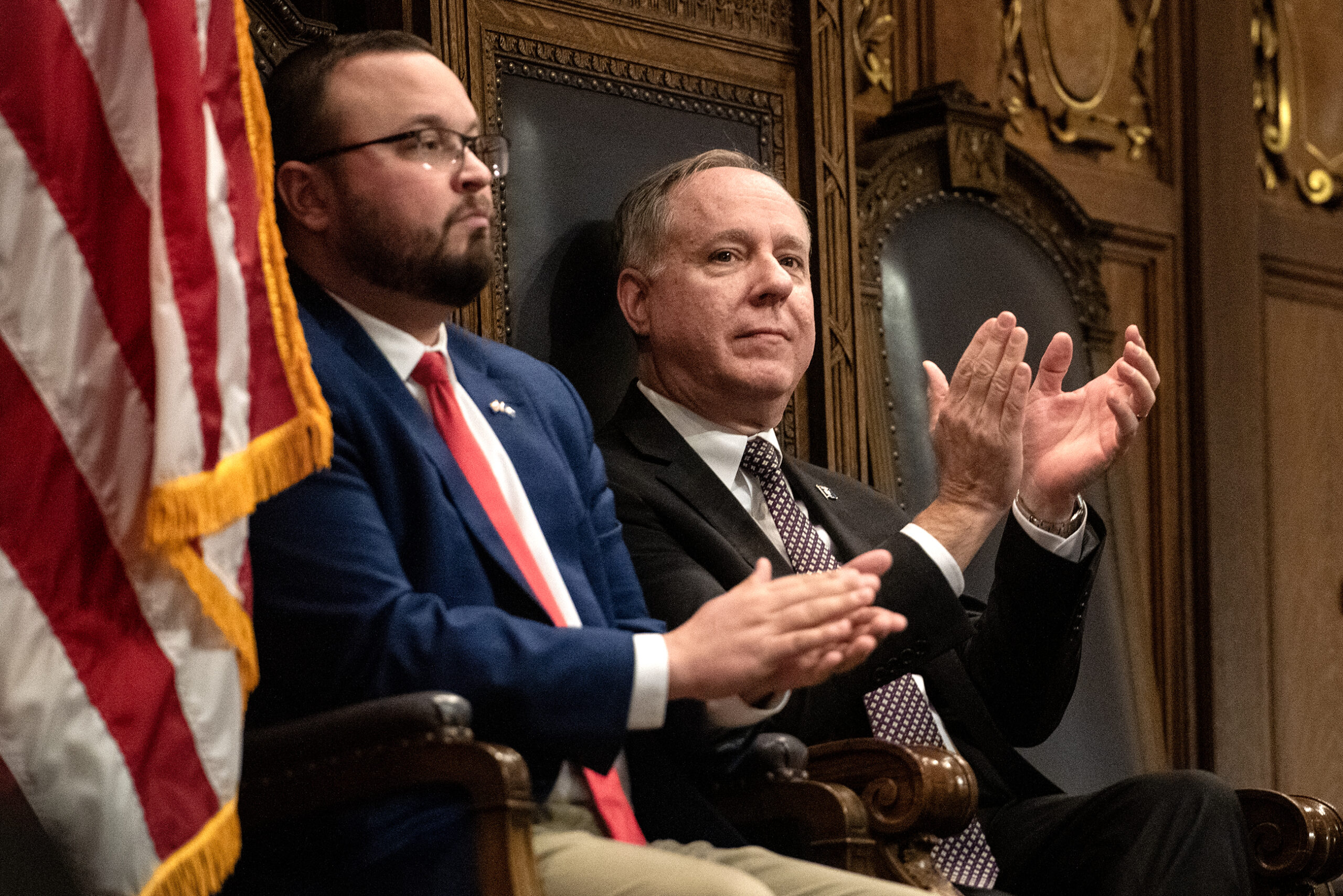Republicans in the state Assembly unveiled changes to a sweeping plan to fund local governments Wednesday, including a new provision that would boost state funding for many communities throughout Wisconsin.
But other elements of the original GOP bill remained intact, including restrictions on how local governments can spend state funding and a requirement that Milwaukee and Milwaukee County ask voters for permission before they’re allowed to raise local sales taxes.
Republicans released the plan the same day Democratic Gov. Tony Evers released a statement saying he was optimistic the two sides would strike a bipartisan compromise. Assembly Speaker Robin Vos, R-Rochester, said many of the changes in the bill were aimed at addressing Evers’ concerns but that it was time to move the plan “across the finish line.”
News with a little more humanity
WPR’s “Wisconsin Today” newsletter keeps you connected to the state you love without feeling overwhelmed. No paywall. No agenda. No corporate filter.
“We are done negotiating,” Vos told reporters assembled outside the Capitol late Wednesday afternoon.
The new proposal would give most cities a 15 percent increase in state funding, up from 10 percent in the original bill. The notable exception would be Milwaukee, which would receive a 10 percent increase. Republicans said they gave Milwaukee a lower percentage increase because the city and county would be able to increase sales taxes.
A provision to require Milwaukee to reinstate police presence in public schools remained in the latest proposal, with a new caveat that those school resource officers will have to receive 40 hours of training.
The latest version of the plan would also let public health officers close businesses for up to 30 days in the event of a pandemic or other public health emergency, or up to 60 days with a vote from the local governing board. Under the original Republican plan, those closures could only last 14 days.
“We feel like the bill that’s coming forward is the result of … good faith negotiations,” said Vos. “We are not going to take changes. We are not going to change the bill substantially.”
The bill passed out of the Assembly late Wednesday night, by a vote of 56-36. Three Republicans joined all Democrats in voting against the plan.
During floor debate, several Milwaukee Democrats denounced the bill as placing unfair and onerous requirements on their city while providing insufficient resources.
“This bill that has been proposed today is dirty. It is a Republican wish list, once again leveraging the pain of local communities to pass policies that those communities do not want,” said Darrin Madison, D-Milwaukee. “It would undermine local control.”
Earlier this month, Evers threatened to veto the bill, saying it placed too many conditions on the state aid, and that the aid was insufficient. But in his statement Wednesday morning, Evers said he’d been in conversations with Vos and Senate Majority Leader Devin LeMahieu, R-Oostburg, over the shape of the legislation.
“Today, we are in a much better place than we were just two weeks ago,” Evers said. “All parties have been willing to set differences aside, all parties have worked to operate in good faith, and all parties have come to the table committed to finding common ground — and for that, I am very grateful.”
After the GOP announcement, Evers spokesperson Britt Cudaback said in a written statement that Evers “hasn’t signed off on any amendment, but he looks forward to continuing negotiations with Republican leaders in the weeks ahead.”
Wednesday’s legislative maneuverings were the latest in a fight for new funding that communities around the state describe as crucial. Evers and Republicans have said for months that they hope to reach a deal, but nailing down the details of that agreement has been challenging.
Whatever passes the Assembly would still need to pass the state Senate, where Republicans could still, in theory, vote for further changes. State Sen. Mary Felzkowski, R-Irma, the lead author of the local funding bill for Senate Republicans, said earlier this month that she favored removing the requirement that Milwaukee and Milwaukee County get voter approval to increase sales taxes.
The discussion over state funding for local communities comes as Milwaukee faces a looming budget crisis, and rural and urban communities alike struggle to fund everything from emergency medical services to roads.
Lawmakers were scheduled to debate the local government funding bill early Wednesday afternoon but they delayed that debate while lawmakers from both parties met behind closed doors to discuss the plan.
Wisconsin Public Radio, © Copyright 2026, Board of Regents of the University of Wisconsin System and Wisconsin Educational Communications Board.







